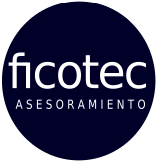Differences between expenditure and expenditure that is difficult to justify.
To begin with we must distinguish between an expense as such, which is justified with a complete invoice and an expense that is difficult to justify by means of a receipt, ticket or simplified invoice…
But for that let’s first see what each thing is.
Complete invoice, it is the one that contains all the data of the issuer and the customer. This is the one we must always demand.
Simplified invoice, it is the purchase ticket of all life. Usually some information is missing. Either the complete sender data is missing or the customer data is missing (completely or partially), which is usually the most common.
When there are no or minimal details, it can even be considered as a mere receipt or proof of payment.
In the event that we give this type of invoice (ticket) should not be allocated as an expense from invoice if not as an expense of difficult justification (which adds VAT and income tax and can not be deducted VAT).
For example, a receipt from the bank for an insurance premium, a self-employed person’s contribution, a tax, etc. the full amount will be taken into account as an expense.
However, receipts for supplies as they appear in the bank account should NOT be included as an expense in this way, as the suppliers or providers generally issue an invoice with a breakdown of the net amount (taxable base), VAT and the total.
Can I deduct my home expenses?
Well, it depends.
If you work from home, and you are the owner of the property (either as owner or tenant) and the invoices are in your name, you can deduct the cost of utilities such as water, electricity, ADSL, landline, etc.
If neither the property nor the utility bills are in your name… nanai.
But as in everything that concerns the self-employed, there are buts and nuances.
I’ll explain it to you with an example, after the last entry into force of the (colloquially known) law of self-employed:
A computer scientist who has a house of 100 square meters and uses 30 square meters as an office can deduct 30% of that proportion. After calculation, this results in a deduction of 9%.
In the hypothetical case that half of a habitual residence is used for economic purposes, the deduction percentage will be 15%. And this is an unusual assumption.
Being objective, it is simply impossible to deduct 30% of the supplies as it was said in the first moment (draft of the law). Most of the self-employed who work at home will be entitled to a tax deduction of less than 10% of water, electricity, ADSL…
To put it another way: Let’s say your house is 100 square meters and you allocate a room of 20 square meters as an office. The result is 6% which must be applied to the corresponding supply bill (water, electricity, adsl, etc.).
That’s the way it is.
Can I deduct the cost of meals or lunches, transport, training and conferences?
I repeat and insist: it depends.
You can deduct daily allowances that are based on an individual meal or lunch. If on a particular day you want to invite your colleagues, you can include it as representation expenses (in theory, it should be an invitation to lunch or dinner to attract clients, but you will know that…).
That is, you can include as an expense a diet for a value not exceeding about 26 euros. And for this expense to be valid, you must demand a complete invoice and proof of payment by POS (electronic means). Come on, I pay by card.
The tax authorities do not normally accept these expenses justified by payment in cash.
If you do not receive an invoice or proof of payment it can NOT be included as an expense.
A bit confusing if you’re not familiar with it.
It’s all right.
Here is a video with a brief explanation of what is an expense and what is not:
Are taxes, fees, penalties and surcharges deductible?
Taxes arising from your activity, e.g. VAT, personal income tax, etc., are NOT deductible. Taxes or fees corresponding to IBI, activity licenses or opening of premises, etc., ARE deductible.
Penalties or surcharges for unpaid bills, account garnishments or tax filings should also not be included as an expense.
You cannot -well, you should NOT- include as an expense a car that is not related to your activity, or petrol tickets of that vehicle that you do NOT use for your professional activity as a freelancer, neither the gym membership or the entrance to the disco, nor the casual or usual clothes (no, the “uniformity” does not work unless you have a cleaning business or similar where you can deduct the item corresponding to uniforms and PPE).
I have come across invoices from customers for clothing from El Corte Inglés or Zara for “uniforms”… which the tax authorities will probably not look kindly on.
That’s all, for the moment. Enjoy the rest of the summer!

